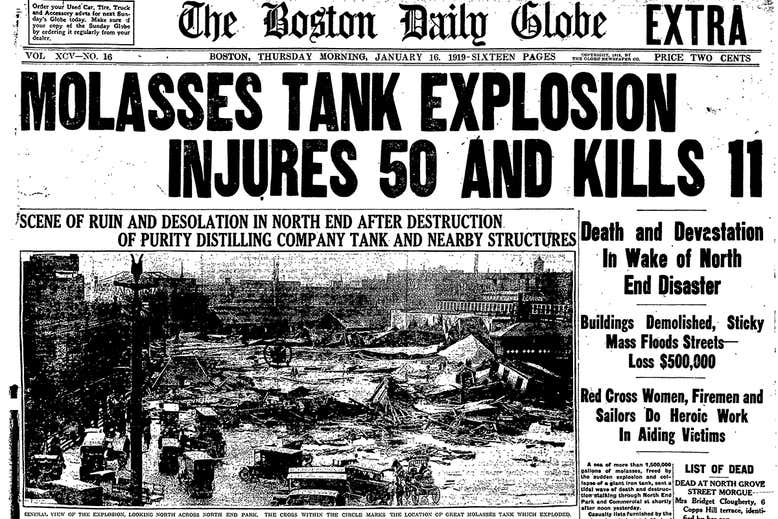Engineering Ethics: The Great Boston Molasses Flood
Boston is home to much history and folklore. And, sometimes the history of the city sounds like folklore.

Credit: 1 PDH
Price: $0.00
Wednesday, February 11, 2026
Start Time: 12:00pm Eastern (11:00am CT, 10:00am MT, 09:00am PT)
Schedule conflict? Get notified the next time this webinar is scheduled.

Engineering Ethics: The Great Boston Molasses Flood
Boston is home to much history and folklore. And, sometimes the history of the city sounds like folklore. One example is the case of the Great Molasses Flood. To those who have never heard an account of this disaster, it sounds too strange to be true. But, sometimes truth is stranger than fiction!
On January 15, 1919, following the failure of a storage tank, a wall of molasses 15 feet high flowed through the North End neighborhood of Boston at a speed of up to 35 miles per hour. The force by which the gooey substance moved was enough to sweep away cars and trucks, demolish buildings and even take out one of the supports for the elevated train that moved above the city.
The Great Molasses Flood caused the death of 21 people and killed countless animals. In addition, 150 people were injured. Although memories of the disaster eventually faded away, the smell of molasses would remain in the North End of Boston for decades.
This ethics webinar will look at how the pre-World War I environment in Boston’s North End resulted in the tank being located in such a densely populated area. We’ll see how the project’s almost impossible schedule contributed to the disaster. We’ll learn about the manager of the project, and how his education and work background left him ill-prepared to take on such a task.
We’ll see how an unusually high ambient temperature swing contributed to the tank’s failure. We’ll also discuss how the tragedy impacted the engineering profession, as well as industry as a whole. Finally, we’ll discuss lessons to be learned from this incident which are still applicable to executing projects a century later.
What you’ll learn in just one hour:
Benefits of Noon Pi webinars:
- You don’t have to leave your office. The entire training session is conducted from the convenience of your desk or meeting room.
- No fancy technology required. A computer or smart phone with a good Internet connection is all the equipment you need. Just log in and start learning.
- No wasted time. Our compact, one–hour sessions fit into the busiest of schedules. In no time, you’re back on the job using the wealth of relevant information you gained.
- Earn PDH credit. Webinars earn PDH credit for engineers in all states, unless noted otherwise in the literature for a specific webinar. For more details, check your state requirements.
- You have nothing to lose. Noon Pi webinars are offered to engineers free of charge!
More info:
For more webinar information, click on the following topics:



